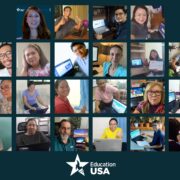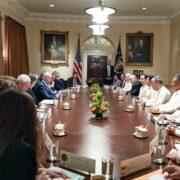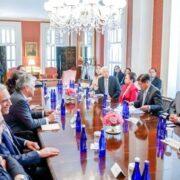
In response to challenges posed by the COVID-19 pandemic, the International Affairs Staff of the Philippine Commission on Higher Education (CHED) teamed up with the U.S. Embassy in the Philippines for the “eLearning Essentials: Responding and Reimagining Education in the Philippines” project, the country’s first international collaboration on flexible learning.
From October to November 2020, 13 CHED officers and 177 State Universities and Colleges (SUCs) representatives participated in a series of nationwide flexible learning trainings as part of the first phase of the jointly-funded project. The Texas International Education Consortium, a U.S.-based non-profit organization that advances global educational partnerships, collaborations, and exchanges for 34 universities across Texas, facilitated the virtual conference.
The U.S. Embassy in the Philippines’ EducationUSA office funded the first phase of the project, and the upcoming phases will be funded primarily by CHED. The first phase kicked off with a flexible learning foundations conference delivered in a synchronous, virtual format that built the capacity of participants, helped them assess their campus needs, provided training on academic integrity and student engagement, and delved into ways to effectively humanize teaching and learning during the COVID-19 pandemic and beyond.
“The program training is truly invaluable and a big help to me and to my institution,” said Don Honorio Ventura State University Instructor Julius Tolentino. “The training on delivering flexible learning modalities enhanced my technological, pedagogical, and content knowledge, which is essential to our seamless migration from a residential, face-to-face [mode] to a flexible, remote, and distance learning mode. The training provided me with all the necessary requisites. It is a springboard to a more enhanced and competitive delivery of our instruction.”
Phase 2 is targeted to begin in March 2021 and will focus on SUC course design meant to help higher education institutions with their course rollout. The second half of the program will also build the capacity of each institution by training faculty experts to serve as flexible learning resources for peers.
In addition to assisting and advising Filipinos interested in studying in the United States, EducationUSA Philippines works closely with Philippine higher education institutions interested in collaborating with accredited U.S. higher education institutions. You can find more information about EducationUSA on Facebook at www.facebook.com/educationusa.philippines and on Twitter at @EducationUSA_PH.
—
Stay updated with news and information from the US Embassy in the Philippines by visiting their website at https://ph.usembassy.gov.






